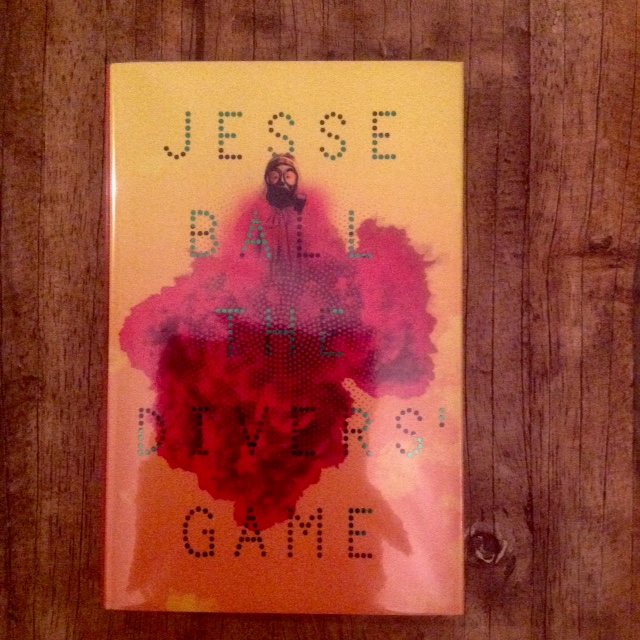Inspiring Older Readers
 posted on 02 Dec 2020
posted on 02 Dec 2020
The Diver’s Game by Jesse Ball
U.S. novelist, Jesse Ball’s dystopian ‘parable’ was included in The New Yorker’s best books of 2019 and garnered a host of admiring and positive reviews. The word ‘parable’ here reflects the fact that Ball is more concerned with the message than with the usual concerns of novel writing like characterisation, plot development or narrative unity.
The book can be seen as being three sections that stitch together through ideas rather than continuity of narrative. In section one we encounter a future world where the population has been through a cataclysmic war and the collapse of the environment. Animal species have been wiped out and zoos are places for the remnants of dead, stuffed specimens and the very last living wild creatures. In this world the big issue is the mass movement of refugees and how they can be accommodated. What Ball envisages is a chilling world in which the migrant becomes a non-person – a situation that is compactly described by David Hayden in his review of the book for The Guardian:
“ Society has been transformed into what the narrator of the first part describes as “a kind of modern-day Sparta”: a brutally stratified culture. Incomers are marked, through a facial brand and later the removal of a thumb, and legally defined as non-persons. They are corralled into walled areas outside each city, called quadrants. These people become known as “quads” or, in a piece of cruel humour, “niners”. Citizens – or “pats” – are armed with lethal gas, which they can use with impunity against the quads. But their own lives are also rigidly ranked.”
We are introduced to two college students, Lethe and Lois, who are taught by a lecturer called Alan Mandred who runs a class explaining why the social structure that has emerged is right and just. Mandred is also an alcoholic and it is rumoured that his wife has committed suicide. The two girls accompany Mandred on a rather shambolic trip to a zoo where the lecturer is to meet a friend and colleague and it turns into something of a nightmare for Lethe who gets separated from the other two and has to navigate her way through a world preparing for ‘Orgias Day’ – a festival of debt forgiveness for citizens that we are told “They have to do … or the government would fall apart.”
At the end of this section we will see no more of Lethe and Lois as our attention switches to the ‘quads’ own festival – The Day of the Infanta – a celebration of rage and misrule. As part of this story we meet Eben, who is taking care of Ollie, the son of a powerful quad named Mr Spencer. And, in the words of David Hayden
“Eben, Ollie and friends have gone to the Sisters, two ponds connected by a tunnel. Swimming through it is the divers’ game – and only the bravest and hardiest can overcome this symbolic separation.”
Part three is where Ball teases out the moral and ethical issues of the world he has conjured up. This section takes the form of an open letter – a suicide note - written by Alan Mandred’s wife explaining why she killed herself. In this letter she explains her epiphany:
"What is it to kill a person?...Something more than speaking out loud, and something less than being born. Something like knowledge, yet less, a knowledge that leaves you with less."
Jason Heller writing on the npr website gives us a summation that I think captures my own sense of this unusual and challenging short novel:
“In Ball's universe, one that runs too closely parallel to our own, the worth of human life has been reduced, negated, argued out of existence. But it's left an echo, and from that echo he builds a haunting symphony. If dystopian stories serve as thought experiments, the best ones also function as heart experiments. And with The Divers' Game, Jesse Ball has unsettlingly accomplished both.”
Available in paperback early in 2012, you can actually pick up second hand copies of the hardback for very little – so why not try that?
Terry Potter
December 2020